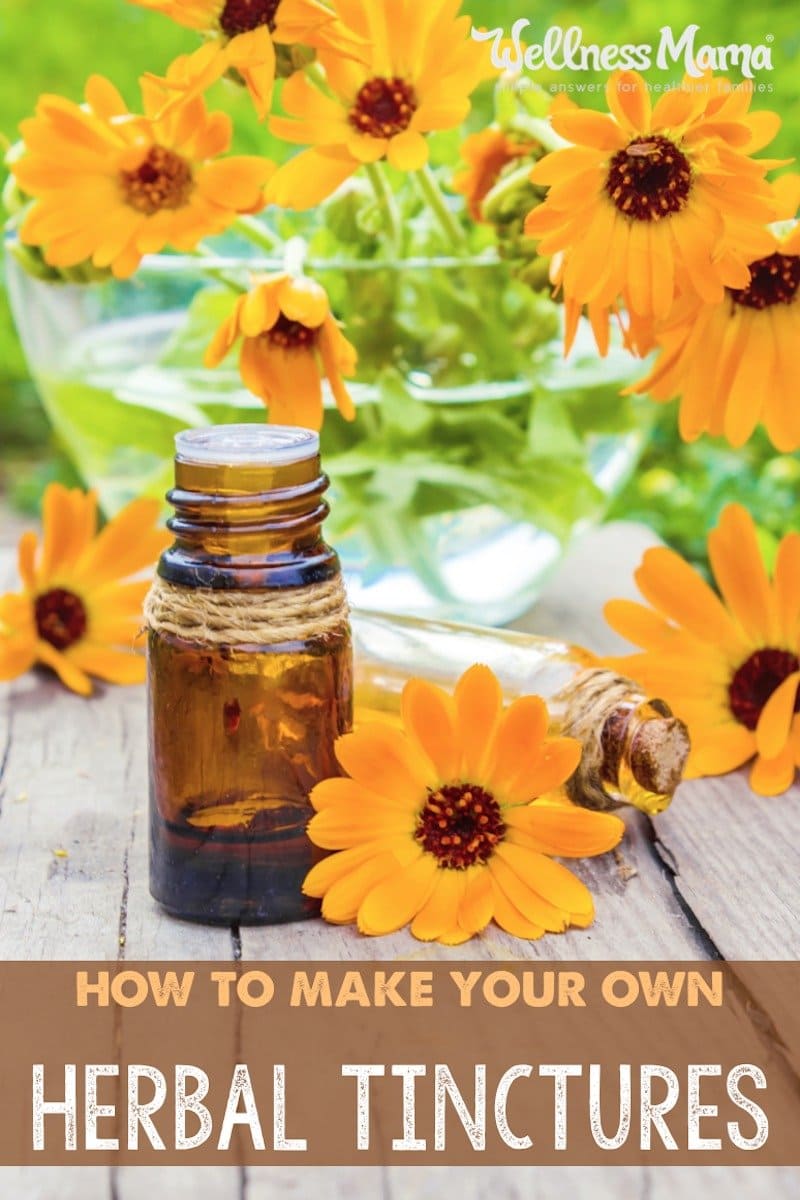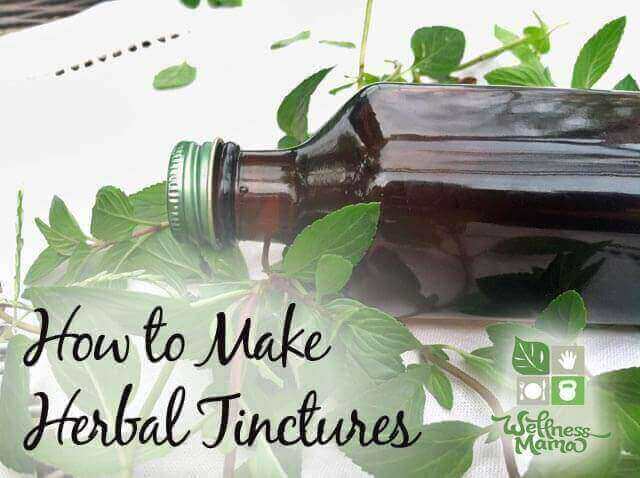I have several tincture recipes posted (including my two favorites: Chamomile Tincture and Digestion Tincture) but I realized that a post with general instructions on how to make a tincture from any herbs would be helpful.
A tincture is a concentrated liquid form of an herb that is easy to make and easy to take. Tinctures preserve and concentrate the properties of the herb, making them more effective and longer lasting.
Alcohol based tinctures have a shelf life of several years and are easy to use when needed! I keep several tinctures on hand for my kids, as they can be used externally even on small children for relief from common problems.
If you’ve ever bought tinctures from the store, I’d encourage you to try making your own, as they are very inexpensive and can be made in minutes.
Tincture Making Supplies
I make most tinctures in an alcohol base as this makes them the most long lasting, but tinctures can also be made with glycerine, vinegar or even with honey to make a syrup!
To make a tincture, you will need the following supplies:
- A clean glass jar (at least pint size) with lid
- Consumable alcohol like vodka or rum- at least 80 proof (or apple cider vinegar or food grade vegetable glycerine)
- Herbs of choice (I typically grow my own)
How to Make a Tincture
Also called an extract (in fact, the same process is used to make real vanilla extract), alcohol tinctures are the most common type and the easiest to make.
First, pick which herbs you plan to use. These are some of my favorite tinctures:
- Chamomile Tincture (great for kids, promotes restful sleep and good for skin)
- Digestion Tincture (helps with nausea, heartburn, etc)
- Sweet Dreams Tincture (I use to help little ones who are having trouble sleeping)
- Echinacea Tincture (great immune support when fighting a cold)
Fill the jar 1/3 to 1/2 full with dried herbs. Filling half full will make a stronger tincture. Do not pack down.
Pour boiling water to just dampen all of the herbs. (This step is optional but helps to draw out the beneficial properties of the herbs)
Fill the rest of the jar (or the entire jar if not using hot water too) with alcohol and stir with a clean spoon.
Put the lid on the jar. Store the jar in a cool/dry place, shaking daily, for at least three weeks and up to six months. (I usually leave herbs for six weeks)
Strain through cheesecloth and compost the herbs. Store the tincture in colored dropper bottles or clean glass jars.
NOTE: The alcohol can be evaporated before use (see below) or a tincture can be made in the same way using apple cider vinegar, though it will need to be stored in the fridge and will only last 3-6 months.
How to Use Herbal Tinctures
The standard adult dose we take is 1/2 to 1 teaspoon up to three times a day as needed. Kids usually get 1/4 to 1/3 of the adult dose.
For children, pregnant women, or those not wanting to consume alcohol, it can be poured into a hot liquid like tea to evaporate the alcohol before consuming.
Ever made your own herbal tinctures? What is your favorite? Share below!



Leave a Reply